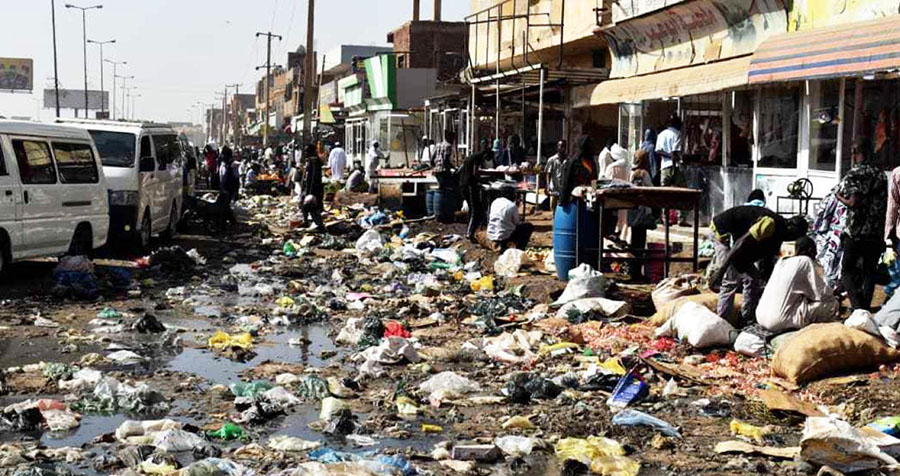
Pollution
Abdel Nasser Fadl
Pollution-related diseases have spread dramatically in Sudan, coinciding with the outbreak of war. They are increasing even after the fighting has subsided and the bloody dialogue has ceased in many Sudanese cities, particularly the capital, the Triangle. For every 10 visitors to a hospital, health center, or private clinic, 8 people suffer from abdominal pain, stomach disorders, colitis, malaria, typhoid fever, poisoning, and other diseases caused by direct pollution.
There is a complete lack of environmental sanitation, including spraying stagnant pools of water and pesticides for mosquitoes, insects, and disease-carrying pests. Food is spread on the ground without oversight or accountability. Most of the restaurants currently operating operate far below environmental sanitation requirements, leading to an alarming rise in disease rates among citizens. It has become a given that citizens who rely on restaurants located in markets and public streets for their meals will contract pollution-related diseases.
Local authorities that opened their doors only for tax collection have neglected many of their duties, most notably environmental sanitation and reviewing the health cards of old and newly opened restaurants after the outbreak of the war. Health cards are only granted to those who meet the required conditions before operating. These conditions include maintaining cleanliness and ensuring the surrounding area is free of the possibility of contaminating the food served to customers.
The most dangerous type of pollution now is water pollution. In a large number of the capitals Triangle neighborhoods, citizens are using contaminated water due to the interruption of the main water lines and their reliance on old wells. These water pipes are likely to mix with sewage, given the lack of purification from impurities, sediments, and pollutants—a feature only available in modern water pipelines.
The lack of sanitary water services is a major humanitarian disaster, no less than the humanitarian disasters in areas of siege and armed conflict, and no less than a crime of genocide. The authorities disregard for the operation of old wells and the passage of water through collapsed pipelines, which suffer from echoes, contamination, and the possibility of mixing with sewage, will lead to an increase in cases of kidney failure, liver disease, cancer, and other incurable diseases.
Water pollution is one of the greatest disasters of war and its devastating repercussions. The authorities disregard for this escalating crisis will cost citizens their lives in the form of fatal diseases.

